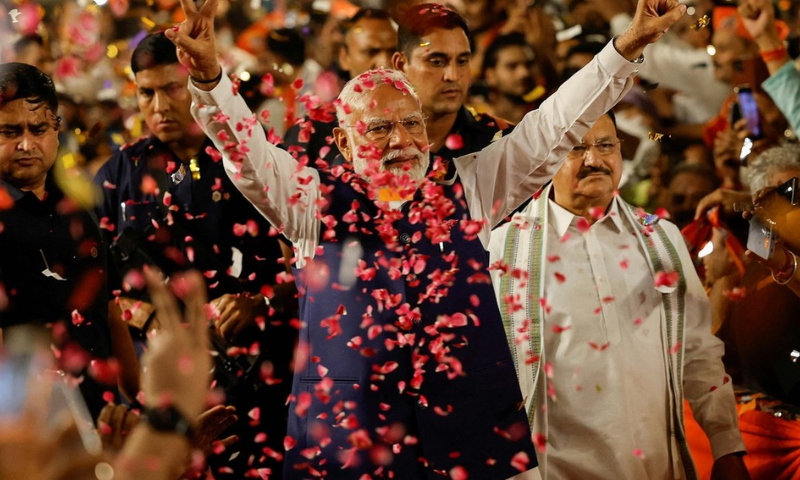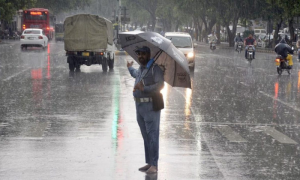NEW DELHI: The Hindu-nationalist Bharatiya Janata Party (BJP), led by Prime Minister Narendra Modi, faced a disappointing electoral setback, losing its parliamentary majority for the first time since 2014. This outcome has been interpreted as a reality check, reflecting the Indian populace’s prioritization of economic issues over divisive rhetoric. Growing discontent related to India’s significant wealth inequality and lack of job opportunities for the vast labor force played a critical role in the election results.
Modi’s aspiration for a supermajority of 370 seats was unmet, with the BJP securing only 240 seats, a 63-seat deficit from 2019. This shortfall means Modi will need to rely on coalition partners to form a government, a significant shift from his previous terms where he enjoyed a majority.
Coalition governance will necessitate a change in Modi’s centralized, top-down approach to policymaking, requiring a more conciliatory tone in negotiations with alliance partners who often have divergent ideological views.
The election results underscore the voters’ demand for addressing economic challenges over divisive populist rhetoric. In the last quarter of 2023, the average Indian remains economically disadvantaged. The country’s per capita income stands at approximately $2,700, and significant portions of the population continue to face poverty and economic disparity.
Economic inequality in India has worsened over the past decade, partially due to Modi government policies favoring large domestic conglomerates. The richest 1% of Indians hold 40% of the country’s wealth, while the bottom 50% hold just 6%. This disparity is starkly visible in financial hubs like Mumbai, home to both Asia’s richest man, Mukesh Ambani, and Dharavi, one of the world’s largest slums.
Opposition parties capitalized on this discontent, appealing to voters who felt marginalized by the uneven economic growth.
The BJP’s loss of a sizeable majority raises concerns about its ability to implement necessary but politically challenging reforms in land, labor, and agriculture. In the previous two terms, even with a majority, such reforms were not achieved. Now, without a parliamentary majority, Modi will need to negotiate with coalition partners to pass legislation.
The Indian constitution divides legislative powers between the Union and the states, suggesting that a move towards political consensus rather than centralization may facilitate future reforms.
The BJP has traditionally focused on high-tech services and capital-intensive industries as growth drivers. However, the majority of Indians lack the skills needed for these sectors, with over 45% of the labor force engaged in low-productivity agriculture.
The lack of manufacturing jobs has contributed to pervasive unemployment and growing inequality, key issues that influenced the electoral outcome.
To effectively utilize its abundant labor force, India may need to shift its development model. The ‘Make in India’ initiative, which promotes domestic manufacturing, has favored capital-intensive industries, leaving many without productive employment. An export-oriented growth strategy, offering opportunities for domestic firms to compete globally, could be more effective. Lowering import barriers to access high-quality inputs is crucial for competitiveness in world markets.
India’s economic challenges remain significant, and the recent election results highlight the necessity for the Modi government to address these issues more effectively.























